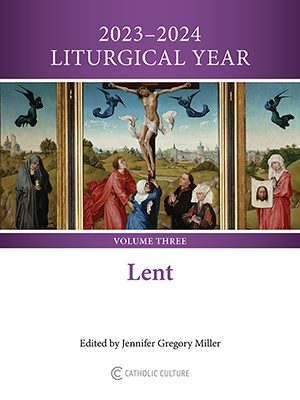Catechism of the Catholic Church
849 The missionary mandate. "Having been divinely sent to the nations that she might be 'the universal sacrament of salvation,' the Church, in obedience to the command of her founder and because it is demanded by her own essential universality, strives to preach the Gospel to all men": 339 "Go therefore and make disciples of all nations, baptizing them in the name of the Father and of the Son and of the Holy Spirit, teaching them to observe all that I have commanded you; and Lo, I am with you always, until the close of the age." 340
850 The origin and purpose of mission. The Lord's missionary mandate is ultimately grounded in the eternal love of the Most Holy Trinity: "The Church on earth is by her nature missionary since, according to the plan of the Father, she has as her origin the mission of the Son and the Holy Spirit." 341 The ultimate purpose of mission is none other than to make men share in the communion between the Father and the Son in their Spirit of love. 342
851 Missionary motivation. It is from God's love for all men that the Church in every age receives both the obligation and the vigor of her missionary dynamism, "for the love of Christ urges us on." 343 Indeed, God "desires all men to be saved and to come to the knowledge of the truth"; 344 that is, God wills the salvation of everyone through the knowledge of the truth. Salvation is found in the truth. Those who obey the prompting of the Spirit of truth are already on the way of salvation. But the Church, to whom this truth has been entrusted, must go out to meet their desire, so as to bring them the truth. Because she believes in God's universal plan of salvation, the Church must be missionary.
852Missionary paths. The Holy Spirit is the protagonist, "the principal agent of the whole of the Church's mission." 345 It is he who leads the Church on her missionary paths. "This mission continues and, in the course of history, unfolds the mission of Christ, who was sent to evangelize the poor; so the Church, urged on by the Spirit of Christ, must walk the road Christ himself walked, a way of poverty and obedience, of service and self-sacrifice even to death, a death from which he emerged victorious by his resurrection." 346 So it is that "the blood of martyrs is the seed of Christians." 347
853 On her pilgrimage, the Church has also experienced the "discrepancy existing between the message she proclaims and the human weakness of those to whom the Gospel has been entrusted." 348 Only by taking the "way of penance and renewal," the "narrow way of the cross," can the People of God extend Christ's reign. 349 For "just as Christ carried out the work of redemption in poverty and oppression, so the Church is called to follow the same path if she is to communicate the fruits of salvation to men." 350
854 By her very mission, "the Church . . . travels the same journey as all humanity and shares the same earthly lot with the world: she is to be a leaven and, as it were, the soul of human society in its renewal by Christ and transformation into the family of God." 351 Missionary endeavor requires patience. It begins with the proclamation of the Gospel to peoples and groups who do not yet believe in Christ, 352 continues with the establishment of Christian communities that are "a sign of God's presence in the world," 353 and leads to the foundation of local churches. 354 It must involve a process of inculturation if the Gospel is to take flesh in each people's culture. 355 There will be times of defeat. "With regard to individuals, groups, and peoples it is only by degrees that [the Church] touches and penetrates them and so receives them into a fullness which is Catholic." 356
855 The Church's mission stimulates efforts towards Christian unity. 357 Indeed, "divisions among Christians prevent the Church from realizing in practice the fullness of catholicity proper to her in those of her sons who, though joined to her by Baptism, are yet separated from full communion with her. Furthermore, the Church herself finds it more difficult to express in actual life her full catholicity in all its aspects." 358
856 The missionary task implies a respectful dialogue with those who do not yet accept the Gospel. 359 Believers can profit from this dialogue by learning to appreciate better "those elements of truth and grace which are found among peoples, and which are, as it were, a secret presence of God." 360 They proclaim the Good News to those who do not know it, in order to consolidate, complete, and raise up the truth and the goodness that God has distributed among men and nations, and to purify them from error and evil "for the glory of God, the confusion of the demon, and the happiness of man." 361
Notes:
English Translation of the Cathechism of the Catholic Church for the United States of America © 1997, United States Catholic Conference, Inc.







